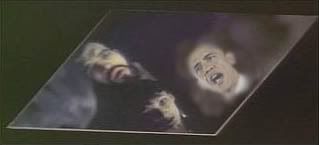This is your morning Open Thread. Pour your favorite beverage and review the past and comment on the future
Find the past “On This Day in History” here.
December 9 is the 343rd day of the year (344th in leap years) in the Gregorian calendar. There are 22 days remaining until the end of the year.
On this day in 1861, The Joint Committee on the Conduct of the War is established by the U.S. Congress.
The Joint Committee on the Conduct of the War was a United States Congressional investigating committee created to handle issues surrounding the American Civil War. It was established on December 9, 1861, following the embarrassing Union defeat at the Battle of Ball’s Bluff, at the instigation of Senator Zachariah T. Chandler of Michigan, and continued until May 1865. Its purpose was to investigate such matters as illicit trade with the Confederate states, medical treatment of wounded soldiers, military contracts, and the causes of Union battle losses. The Committee was also involved in supporting the war effort through various means, including endorsing emancipation, the use of black soldiers, and the appointment of generals who were known to be aggressive fighters. It was chaired throughout by Senator Benjamin Wade of Ohio, and became identified with the Radical Republicans who wanted more aggressive war policies than those of Abraham Lincoln.
Union officers often found themselves in an uncomfortable position before the Committee. Since this was a civil war, pitting neighbor against neighbor (and sometimes brother against brother), the loyalty of a soldier to the Union was simple to question. And since Union forces had very poor luck against their Confederate counterparts early in the war, particularly in the Eastern Theater battles that held the attention of the newspapers and Washington politicians, it was easy to accuse an officer of being a traitor after he lost a battle or was slow to engage or pursue the enemy. This politically charged atmosphere was very difficult and distracting for career military officers. Officers who were not known Republicans felt the most pressure before the Committee.
During the committee’s existence, it held 272 meetings and received testimony in Washington and at other locations, often from military officers. Though the committee met and held hearings in secrecy, the testimony and related exhibits were published at irregular intervals in the numerous committee reports of its investigations. The records include the original manuscripts of certain postwar reports that the committee received from general officers. There are also transcripts of testimony and accounting records regarding the military administration of Alexandria, Virginia.
One of the most colorful series of committee hearings followed the Battle of Gettysburg in 1863, where Union Maj. Gen. Daniel Sickles, a former congressman, accused Maj. Gen. George G. Meade of mismanaging the battle, planning to retreat from Gettysburg prior to his victory there, and failing to pursue and defeat Robert E. Lee‘s army as it retreated. This was mostly a self-serving effort on Sickles’s part because he was trying to deflect criticism from his own disastrous role in the battle. Bill Hyde notes that the committee’s report on Gettysburg was edited by Wade in ways that were unfavorable to Meade, even when that required distorting the evidence. The report was “a powerful propaganda weapon” (p. 381), but the committee’s power had waned by the time the final testimony was taken of William T. Sherman on May 22, 1865.
The war it was investigating completed, the committee ceased to exist after this last testimony, and the final reports were published shortly thereafter. The later Joint Committee on Reconstruction represented a similar attempt to check executive power by the Radical Republicans.

 John and I are in our Dakota kitchen in the middle of the night. Three cats – Sasha, Micha and Charo – are looking up at John, who is making tea for us two.
John and I are in our Dakota kitchen in the middle of the night. Three cats – Sasha, Micha and Charo – are looking up at John, who is making tea for us two.




Recent Comments